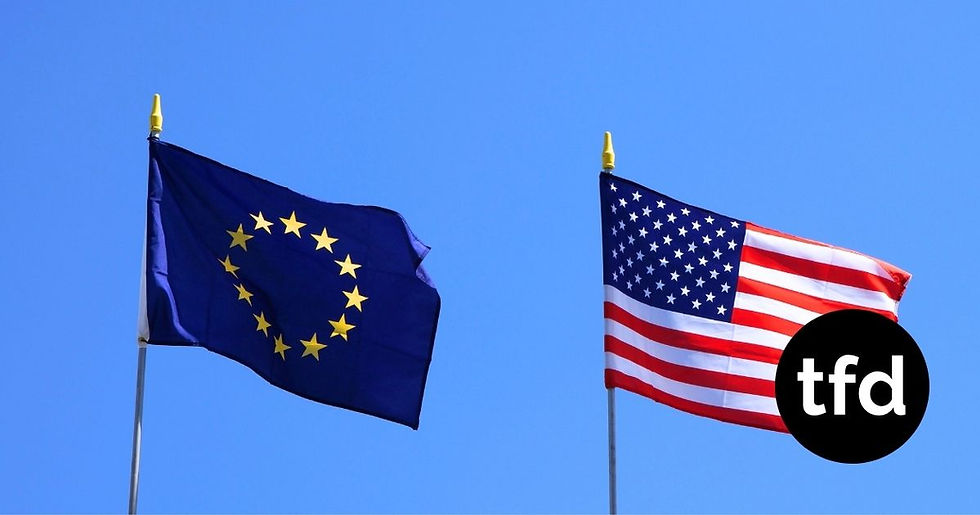U.S.-EU Trade Deal Will Raise Costs For Companies And Consumers
- By The Financial District

- Jul 29
- 1 min read
President Donald Trump and European Commission President Ursula von der Leyen have announced a sweeping trade deal that imposes 15% tariffs on most European goods, avoiding Trump’s earlier threat of a 30% rate if no agreement was reached by August 1, David McHugh reported for the Associated Press (AP).

Economists warn that even a 15% tariff rate will have immense negative effects on export-oriented industries.
The tariffs—import taxes paid when Americans purchase European goods—could drive up prices for U.S. consumers and cut into profits for European companies and their U.S. partners.
The announcement, made during Trump’s visit to one of his golf courses in Scotland, leaves many details yet to be finalized.
The headline figure is a 15% tariff on “the vast majority” of European exports to the U.S., including automobiles, semiconductors, and pharmaceuticals. That’s lower than Trump’s earlier proposals of 20%, 30%, and even 50%.
Wolfgang Niedermark of the Federation of German Industries warned that “even a 15% tariff rate will have immense negative effects on export-oriented German industry.”
ING Bank’s global head of macro research, Carsten Brzeski, noted that “the big caveat to today’s deal is that there is nothing on paper yet.”
He added, “With this disclaimer in mind and at face value, today’s agreement would clearly bring an end to the uncertainty of recent months. An escalation of US-EU trade tensions would have been a severe risk for the global economy.”





![TFD [LOGO] (10).png](https://static.wixstatic.com/media/bea252_c1775b2fb69c4411abe5f0d27e15b130~mv2.png/v1/crop/x_150,y_143,w_1221,h_1193/fill/w_179,h_176,al_c,q_85,usm_0.66_1.00_0.01,enc_avif,quality_auto/TFD%20%5BLOGO%5D%20(10).png)









